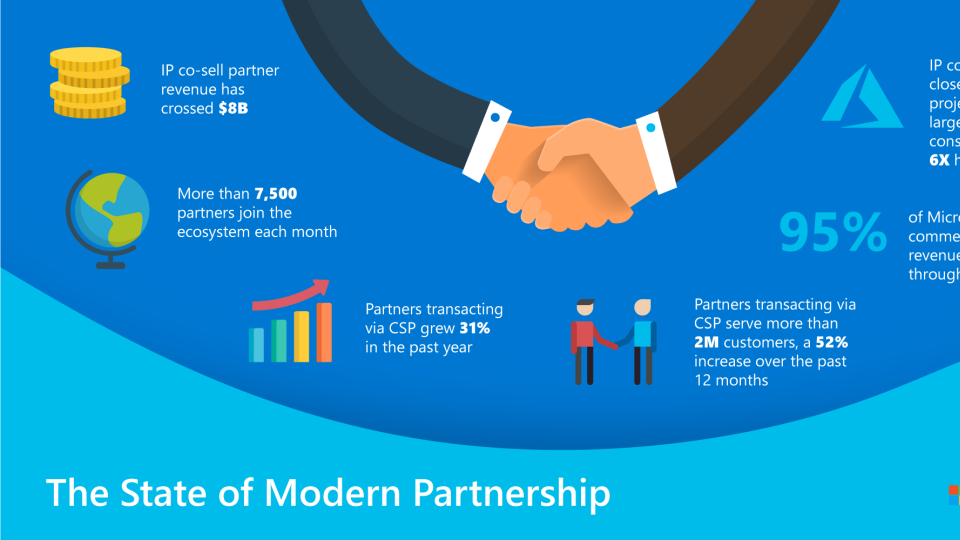
Microsoft is making a big play for the ISV market in the cloud. Gavriella Schuster, VP of One Commercial Partner at Microsoft says it has seen 48% growth yr/yr in commercial cloud and that 95% of its commercial business is through partners. She highlighted that it has thousands of partners joining each month, and that numbers working as Cloud Solution Partners grew over 30% last year, and is the fastest growing licensing model.
The aim is to sell more in co-operation with Microsoft, using its tools and platform. “IP Co-Sell, our industry-leading IP co-sell program that rewards Microsoft sellers for selling third-party solutions is a runaway success, generating $8bn in contracted partner revenue since July. Our partners are reaping the benefits and seeing co-sell deals close nearly three times faster, projects that are nearly six times larger, and drive six times more Azure consumption.”
“One of the biggest developments is the ability for partners to offer their solutions to our partner ecosystem through the CSP program, with a single click. We’re also improving the user experience and interface with natural language and recommendations features. And by setting up private marketplaces, partners will be able to customize the terms for any specific customer—billing or metering their services on a per-user, per-app, per-month, or per-day basis to meet customer needs,” she says
Gartner estimates the opportunity for business applications will be $133bn this year, with independent software vendors (ISVs) driving more than half of that. “So we are upping our commitment to ISVs by investing in Microsoft’s marketplaces, Azure Marketplace, and AppSource, to build the largest commercial marketplace in the industry.”
But partners may be less reassured by her joy at the number of customers becoming partners through developing their own solutions and selling to others in their industry. She highlighted a US retailer, Kroger, who has developed an Azure-powered solution it is now offering to other retailers as “Retail-as-a-service”.
Worrying too may be the new Recruit, Onboard and Retain Talent playbook it has produced which demonstrates the need to consider the issue of skills in the industry and competition for resources which may put smaller partners at a disadvantage. But at the moment, Microsoft is set on dominating cloud applications for business.


